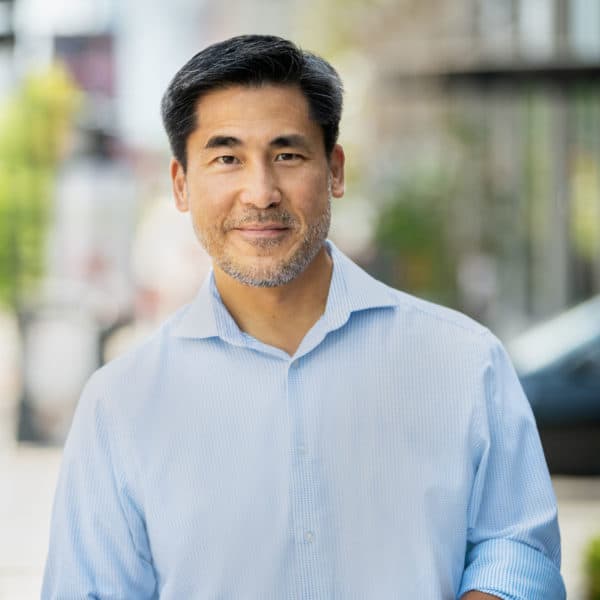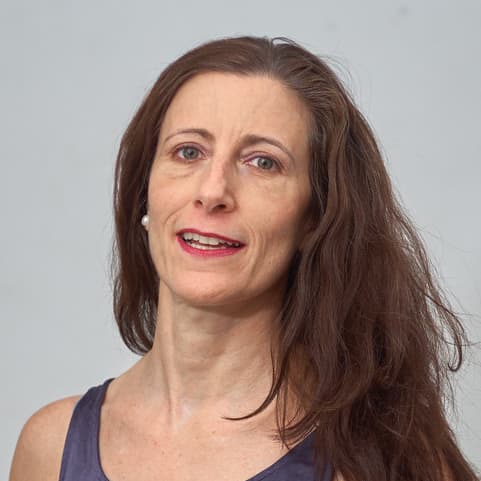Advertisement
Authoritarianism expert weighs in on Trump, Musk and the fate of U.S. democracy

Billionaire Elon Musk turned up at a White House cabinet meeting Wednesday.
Musk is at the center of efforts to cut federal spending and workers. He’s not an elected official nor an appointed secretary. At the meeting, Musk ridiculed federal workers as cabinet members sat silently.
That’s when President Trump asked if anyone was a dissenter.
“Anybody unhappy with Elon?,” Trump asked. “Because if there are, we’ll throw them out of here. Is anybody unhappy?”
Silencing critics is one thing authoritarians often do, according to authoritarianism expert Ruth Ben-Ghiat, author of the book “Strongmen: Mussolini to the Present” and professor of history and Italian studies at New York University.
“ President Trump is kind of saying, ‘We're together in this, Musk and I, and there is to be no dissent. And if you dissent about Musk, you will be thrown out,’” Ben Ghiat says.
6 questions with Ben Ghiat
When you see the president clearly silencing critics in the room at a cabinet meeting, what do you think about?
“I see, on the one hand, a continuation of the authoritarian tendencies of that individual who has never liked critics. Even in his first administration, certain journalists who were too forthcoming, like Jim Acosta, were stripped of their credentials temporarily. So now he's consolidating all of these tendencies.
“And it's very interesting because the subject was a very controversial person who is some say is like a co-president and that is Elon Musk, who essentially [has] been doing something that could be classified as a coup, kind of taking over government offices and having a kind of data breaches and locking out our elected officials from government buildings. And so that's a weak point for the Trump administration.”
On Tuesday, White House press secretary Karoline Leavitt announced changes to who would cover the president on a daily basis in the Oval Office and on Air Force One. What is the value of controlling who the reporters are who tell their stories?
“Authoritarians know that unified messaging is very important, and that's why they crack down on dissent even within the party, and they end up with ‘party line.’ And here we have them taking on a democratic organization. The White House Correspondents Association included press organizations from all different political views across the political spectrum. And what they're saying is that only people who agree with us and will say the things that we want them to say will now be admitted. So they're taking a democratic practice of journalism and a democratic organization and trying to push it in an authoritarian direction.”
You write about military purges over time. We know the president has recently removed top generals, a highly unusual move for American presidents. How might that enable this president to have more authority over the military?
“ It's a very dangerous line that they're they're crossing doing military purges because the history of such events says that they often weaken the military. And in any sphere of government, when you put loyalists in charge and you privilege loyalty over competence and experience and professionalism, that's a problem.
“And so many authoritarian governments, they cover themselves with myths of efficiency. But they're actually quite incompetent behind the scenes. And so it's very dismaying to see so early in the administration as well, this kind of attempt to politicize the military by kicking out people who were extremely qualified and putting in people who are seen as loyalists.”
You used the word coup a little earlier on for leaders who have enough control over the military. Does that kind of make them coup-proof themselves?
“ Yes, in established authoritarian regimes, one of the dynamics is the longer the leader's been in power, and the more corrupt he's become, and the more violent he's become, the more paranoid he gets.
“Those leaders, that's why they have purges, not just purges of the military periodically, but also of their cabinets, meaning the leader is practicing something called divide and rule. And that is they pit officials, top officials, against each other and make them compete to be the most loyal. Because then the officials are far less likely to band together against the leader, who can be very hated if he's been there for a long time. So coup-proofing is something that a lot of authoritarians do.”
Is it really that bad in this country? We still have elections where Americans, if they want, can vote out Trump and his supporters. There are the courts. And critics might also ask, is this really a Trump phenomenon? Or is this a question we've asked before in American history?
”Having elections is not itself a proof that we are safe from authoritarianism. Even [Vladimir] Putin has elections. [Recep Tayyip] Erdogan in Turkey, he has elections. But what you do today is that you kind of keep elections going, but then you game the system by domesticating the media, by purging the judiciary and the electoral apparatus, by killing off, in some cases, like Putin did with [Alexei] Navalny or having arrested politicians who are opposition politicians who are very popular. And that way you game the system so you don't need to suppress elections anymore.
“It's very early. The Trump administration is only a month old, and many, many things have happened in this month. And the things that have happened are not promising in terms of our democracy. But we're starting to see because it's been so extreme and the things that have been done with the civil service threats, the threat level for judges and others are up Musk taking over private data with a kind of digital shock troops of 19-year-olds. All of this is very irregular.
Advertisement
“So we're starting to see a resistance and protests around the country. And I always say never underestimate the American people. It's early, but I think that people, if they feel they have cause to protest these kind of aggressions on our democracy, I believe they will.”
In your book, you write about many strongmen. You mentioned Erdogan, Muammar Gaddafi, [Viktor] Orban, [Augusto] Pinochet, Putin. I want to ask about Germany because the incoming German Chancellor Friedrich Merz has said recently he wonders if the U.S. will remain a democracy. Why is that important, you think, coming from a voice from Germany?
“ Well, because Germany not only had an infamous Nazi regime, it was the perpetrator of the Holocaust, it had a very strict anti-hate law, anti-hate speech law, a very strict kind of monitoring of history and extremism in Germany to make sure it never happened again. And so they're very sensitive in Germany to signs that countries are moving away from democracy.
“It was a huge shock to people that our Vice President JD Vance showed up in Germany and basically supported the most extreme party that has neo-Nazis in it, the Alternative for Germany, which just doubled in the elections its support up to 20%.
“And then Elon Musk, who again is part in some way of the U.S. government, he had spoken to the same extremist party and he did what to many people, including me, was he performed a Nazi salute. So the new chancellor has reason to worry that even before America voted for Russia and against democracy at the [United Nations] recently, it is siding with Putin. It is declaring that it wants to be in this alliance with autocrats and all of this is very scary for Europeans.”
This interview has been lightly edited for clarity.
This segment aired on February 27, 2025.

